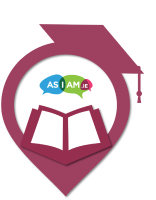College can be an enormous change, especially if you’re moving away from home. I grew up in a small town where everyone knew one another from preschool to graduation. You will likely have had multiple groups to rely on such as classmates, sports teams, teachers, and family members. When we are younger these kinds of networks are mostly built for us through location, education, and family locations.
Moving to college usually means uprooting yourselves from these networks. Even if you’re still living at home there’s a chance your friends will be moving out themselves. Colleges have much larger student populations than most schools, so the same sense of closeness will be harder to find. Building a community of your own is a good idea to ensure an enjoyable and supportive environment for your time in college. It’s also crucial for maintaining your own mental health.
Here’s a number of things you can do to start this process as soon as possible.
1. Connect with your flatmates
If you’re living away from home, it’s a good idea to form a good relationship with your flatmates. As covered in our other piece, this can be done in a few ways. Having a meal or coffee with them in your first week or going to an event together can be a great way to start. You might not end up best friends, but even having someone who’s aware of your needs can make a huge difference.
2. Attend Fresher’s week
Fresher’s week (read here) is designed to be a welcome experience for new students coming into college. Remember that most first-year students, autistic or neurotypical, will be coming into college as an entirely new environment. These people will be just as eager to find friendship and community. Events like ‘Speed-friending’ are becoming increasingly common, so keep an eye out for this. Speed-friending, like speed-dating, involves talking to a stranger for five minutes before switching tables and repeating the process. Events like these can be a great way to meet new people and see what you have in common. The SU usually organises tours through the city during this time to show you important spots such as supermarkets and other important facilities in your new area. Finally, Fresher’s week is a good opportunity to join college societies.
3. Join college societies
College societies are extremely varied and can allow you to pick up and old hobby interact with various communities you might not normally encounter. If you used to play sport in school, rugby or football clubs are a great way to keep this up and meet new people. There are also recreational societies like film or gaming. These allow you the chance to indulge in a hobby and meet like-minded people through game tournaments or film screenings. You’ll also have the chance to start a new hobby like juggling, dance or painting. Going to an unfamiliar event might be scary but remember it can be easier to talk to people when you’re both in a situation that is a little ridiculous and out of your comfort zone. By putting you both on the same level of awkwardness, it is easier to laugh together and get a conversation going.
4. Get to know your neighbourhood
Get off campus! Get to know the city or town you are studying in. Visit local libraries, live music events in the area, parks, and museums. This can help you in forming friendships and connections that aren’t restricted to the classroom. Volunteering in your area with the county council, arts festivals and charities can also be a great way to get engaged with the community.
5. Find other neurodivergent people
A good way of finding a sense of community is seeking out other neurodiverse people to befriend. It’s helpful to have peers who understand your strengths and challenges. Peers who will understand your “quirks” because they have them too and will listen and care about you, is affirming. Many colleges have neurodiversity, autism, or ADHD support groups. In fact, DCU recently formed the world’s first Neurodiverse Society. https://www.facebook.com/Neurodivergent-Soc-DCU-101515261254672. This doesn’t even necessarily have to be on campus. Groups such as Autistic Paddies and Aspire provide social groups for autistic people of all ages.
6. Be patient.
Remember things don’t happen all at once. The most important thing to remember is to be kind. Even if you don’t immediately click with people, they will remember your friendliness, and you might have a class with them the next semester or see them on campus later. Being able to greet others on campus and having others greet you goes a long way. Finding your people isn’t easy. You may have to try out a couple different groups to find where you belong and that’s okay. For example, freshers week might be too overwhelming or you may not be particularly close with your flatmates. You aren’t obliged to get everything right in your first few weeks. Many first years don’t develop close relationships until the second term. You will find your tribe; have patience and enjoy the process!
